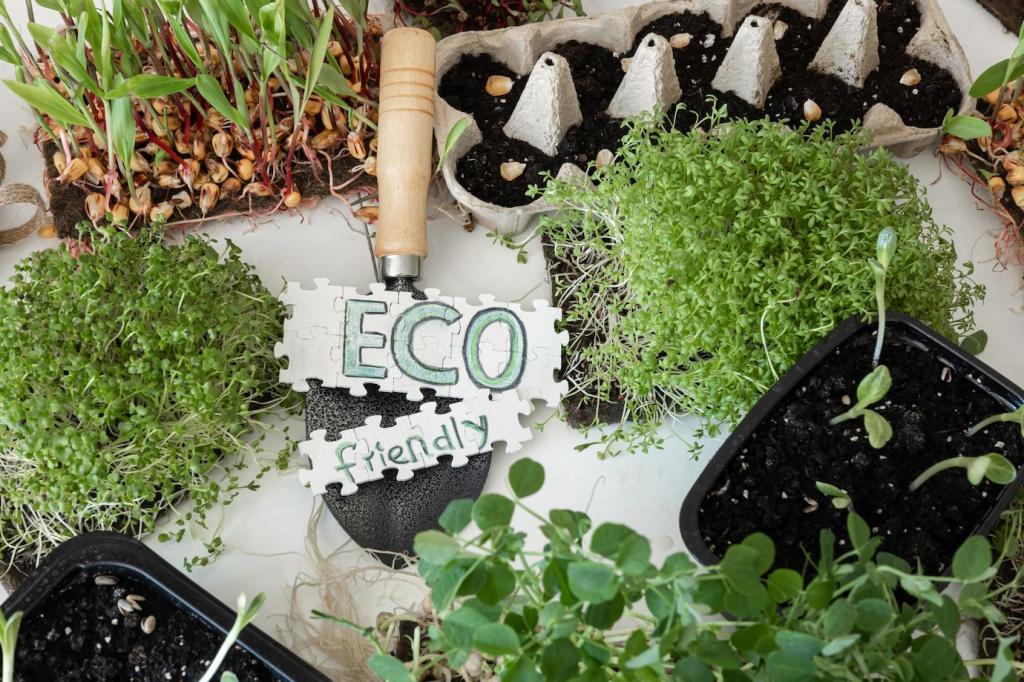Today’s Theme: How to Choose Sustainable Products for Upholstery Cleaning
Welcome to a greener clean. Today’s chosen theme is How to Choose Sustainable Products for Upholstery Cleaning. We’ll decode labels, ingredients, and fabric needs so you can protect your home, your health, and the planet—while keeping every sofa story-ready. Subscribe for weekly eco-cleaning insights and share your questions below.

Decoding Trusted Eco Certifications
Look for EPA Safer Choice, Green Seal, and ECOCERT Cosmos labels when choosing upholstery cleaners. These programs assess human health, environmental fate, and product performance. Share which labels you trust most, and tell us if certifications influence your buying decisions.

How to Verify a Label’s Authenticity
Don’t rely on packaging alone. Check each certifier’s public database by product name or company. If the listing is missing, ask the brand directly for proof. Comment with any suspicious claims you’ve spotted, and help others avoid greenwashing traps.

Red Flags for Greenwashing
Vague phrases like “eco-friendly,” “natural,” or “non-toxic” without substantiated criteria are warning signs. Seek full ingredient lists and safety data sheets. If a brand hides details, move on. Share your greenwashing stories so our community learns faster together.
Ingredients: What to Seek and What to Skip
Coco-glucoside and decyl glucoside are gentle, biodegradable surfactants often derived from coconut or corn. Enzymes like protease and amylase target food and pet stains effectively. Tell us your experience with enzyme cleaners on sofas, and whether they outperformed traditional formulas.

Match the Cleaner to Your Fabric
Natural Fibers: Linen, Cotton, and Wool
Opt for pH-neutral, low-residue cleaners for natural fibers. Avoid overheating and over-wetting, which can cause shrinkage and dye migration. Share in the comments if gentle, plant-based formulas helped your linen cushions look brighter without harsh after-effects.
Synthetics and Microfiber Considerations
Microfiber and polyester often hold oils and odors. Choose a cleaner with effective but mild surfactants and minimal residue to prevent rapid re-soiling. Have you tried microfiber-specific formulas? Tell us what worked, and whether rinse-free options saved water and time.
Leather and Faux Leather Care
Seek pH-balanced cleaners without harsh solvents and follow with a responsible conditioner made from plant waxes rather than petroleum. Test a hidden area first. If you have a leather success story, drop your before-and-after details for others to learn from.
Concentrates and Refill Stations
Concentrates cut transport emissions by shipping less water, and they often cost less per clean. Check dilution instructions for upholstery. Do you have a local refill shop? Share the location and brand so neighbors can refill responsibly and save bottles together.
Recycled and Recyclable Materials
Prefer bottles made from post-consumer recycled plastic or glass with clear recycling guidance. HDPE #2 is widely accepted. Tell us how you manage empties, and if take-back programs or mail-in recycling made your routine greener without sacrificing convenience.
Local Brands and Shorter Supply Chains
Buying regional products can reduce transport emissions and support green jobs. Look for transparent sourcing and domestic manufacturing. Comment with your favorite local upholstery-cleaner brands and what convinced you to switch from bigger, less transparent alternatives.

Spot-Testing and Right-Sizing Your Dose
Always test an inconspicuous patch to confirm colorfastness. Start with the lowest effective dilution to avoid residue. Share your dosing wins or mishaps, and help others dial in the perfect ratio for stubborn stains without overusing product.
Tools That Boost Efficiency
Use a fine-mist sprayer, microfiber cloths, and a soft upholstery brush. These tools reduce oversaturation and capture soil efficiently. Tell us your favorite cleaning setup, and whether switching tools cut your product use while delivering better, longer-lasting results.
Anecdote: The Two-Bottle Test
Maya compared a certified enzyme cleaner to a generic “green” one on her playroom sofa. The certified option removed berry stains with half the product and no lingering smell. Have your own experiment story? Post it and inspire smarter, sustainable choices.
Health, Home, and Pet-Friendly Choices

Sensitive Households and Indoor Air
Low-VOC, fragrance-free upholstery cleaners lessen respiratory irritation for people with asthma or allergies. Ventilate by opening windows during cleaning. Tell us if a switch to low-VOC products improved comfort at home and reduced headaches or sneezing after cleanup.

Pet-Safe Formulas and Accidents
For pet messes, enzyme cleaners break down proteins and odors effectively without relying on harsh solvents. Always keep products out of reach. Share your toughest pet stain and which eco-friendly formula finally neutralized the smell without perfumed cover-ups.

Transparency and Full Ingredient Lists
Favor brands that publish complete ingredients and Safety Data Sheets, not just marketing buzzwords. Transparency builds trust and helps you avoid allergens. Comment with companies you respect for openness, and we’ll highlight them in a future sustainable-cleaning roundup.
Disposal, Aftercare, and Longer Furniture Life
01
Follow local guidance for disposing of rinse water and avoid storm drains. Biodegradable does not mean harmless in every ecosystem. Share your city’s rules or tips, and help readers navigate responsible practices without guesswork or accidental pollution.
02
Routine vacuuming, immediate blotting, and using washable throws reduce heavy cleanings and chemical use. What preventive habits work for your household? Post your routine, and let’s build a realistic checklist that keeps couches fresh with minimal product.
03
Subscribe for monthly product roundups, reader-tested routines, and ingredient deep dives. Ask a question, request brand comparisons, or vote on next week’s upholstery experiment. Your participation steers our research and helps everyone clean more sustainably.
